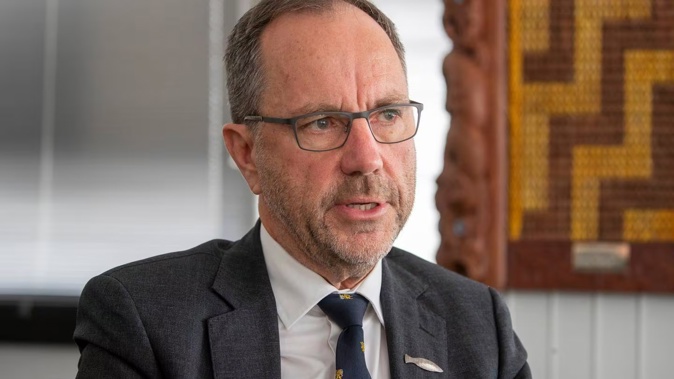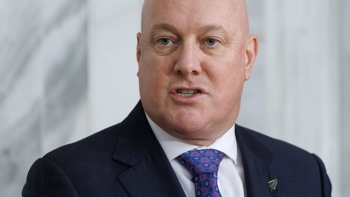
An inquiry by the Auditor-General into how government agencies support the mental health needs of 12- to 24-year-olds has found that too many young people are missing out despite major investments in the sector. Alex Spence reports on the findings.
Vast information gaps, poor co-ordination, and severe workforce shortages are hampering the Government’s response to an escalating youth mental health crisis, according to a report by the Auditor-General.
The report, tabled in Parliament today, found that many 12- to 24-year-olds with mental health difficulties are waiting too long for support or are missing out entirely, despite recent Labour-led governments investing more than $2 billion in the sector.
Dame Jacinda Ardern’s administration identified young people as a priority and introduced some new early-intervention initiatives, but government agencies still have a poor understanding of how to support children and teens and services for them are fragmented and strained, the report said.
Young people who need specialist treatment for the most serious conditions are waiting longer than they did before the landmark 2019 Wellbeing Budget, the Auditor-General said.
“Mental health concerns are the biggest health issue facing young New Zealanders today,” the Auditor-General John Ryan said in a statement that accompanied the report. “However, we found that many young people cannot get mental health support when they need it.
“In a country that prides itself on being a good place to bring up children and young people, this is a matter we should all be concerned about.”
The Auditor-General made nine recommendations for improving support for young people, including the collection of up-to-date information on their mental health needs; better co-ordination of services; giving young people a role in designing services; and developing a national workforce plan for mental health.
The Auditor-General’s investigation will bring fresh impetus to a significant social problem that has been deepening for years under successive governments led by both major parties.
His report echoes the findings of a major Herald investigation in 2022, which reported that there had been an alarming rise in rates of psychological problems such as anxiety, depression, and self-harm among children and adolescents even before the Covid-19 pandemic. Families, schools, primary health providers, and specialist mental health services – depleted by years of underfunding, bad planning, and shortages of psychiatrists, psychologists, nurses, and other skilled staff – were being overwhelmed by the rising tide of anxiety and distress.
In its 2019 Wellbeing Budget, Labour prioritised setting up early-intervention services in primary care for people with milder problems, known as the “Access and Choice” programme. Youth-focused initiatives under this programme are now seeing around 2900 young people a month and “might” eventually relieve demand on other parts of the system, the Auditor-General said.
However, there is not a co-ordinated, universal system that brings together primary health providers, specialist psychiatric services, schools, NGOs, and other agencies in a way that provides young people with a range of consistent, high-quality supports that are easy to access and fit their specific needs.
“We saw no coherent system design or vision of how the different parts should fit together as a whole,” the Auditor-General said.
The report also found that specialist public services (known as “CAMHS”, “ICAMHS”, or “CAFS”) are underfunded and oversubscribed. Last year, only 63 per cent of young people were seen within the three-week target for a first appointment. The average wait to start treatment was nine weeks after referral. Many referrals are not accepted because providers have increased the thresholds for acceptance due to high demand.
Workforce shortages are particularly acute in CAMHS services, with staff turnover rates reaching 19 per cent in 2021. Clinicians told the Auditor-General that increasing caseloads are causing them to experience distress and affecting their ability to care for patients.
Schools could be an opportunity to intervene early to help children with emerging problems but there are significant gaps in their knowledge and the services available. The Ministry of Education does not know how many students are accessing guidance counselling services or how effective they are, the Auditor-General said, and the Government does not hold data on whether mental health problems have contributed to falling classroom attendance.
Oranga Tamariki has poor visibility over the mental health needs of the children in its care even though they are some of the most psychologically vulnerable young people in the country. Children involved with Oranga Tamariki were four times more likely to have attempted suicide in the past year than those who had no contact with the agency, the report said.
The last comprehensive study of the prevalence of mental health problems was conducted in 2006. Government departments rely on a patchwork of information sources including general population health surveys and service use data, which the Auditor-General said “is not enough for agencies to make informed decisions about service funding and planning”.
The Ministry of Health and Te Whatu Ora-Health New Zealand said in a joint statement that they would work together to implement the Auditor-General’s recommendations.
“The report usefully contributes to the cross-government conversation about the drivers of mental wellbeing and mental distress by taking a wide view of services delivered across government rather than focusing solely on the health system,” the health authorities said. “We all have a role to play in supporting young people’s mental wellbeing.”
Alex Spence is a senior investigative journalist based in Auckland. Before joining the Herald, he spent 17 years in London where he worked for The Times, Politico, and BuzzFeed News. He can be reached at [email protected] or by text or secure Signal messaging at 027 235 8834.
SUICIDE AND DEPRESSION
Where to get help:
• Lifeline: Call 0800 543 354 or text 4357 (HELP) (available 24/7)
• Suicide Crisis Helpline: Call 0508 828 865 (0508 TAUTOKO) (available 24/7)
• Youth services: (06) 3555 906
• Youthline: Call 0800 376 633 or text 234
• What's Up: Call 0800 942 8787 (11am to 11pm) or webchat (11am to 10.30pm)
• Depression helpline: Call 0800 111 757 or text 4202 (available 24/7)
• Helpline: Need to talk? Call or text 1737
If it is an emergency and you feel like you or someone else is at risk, call 111
Take your Radio, Podcasts and Music with you









